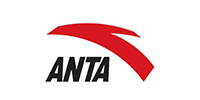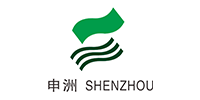

Fashion
With the support of a flexible supply chain, there is less waste and higher efficiency
With the rapid change in user preference and the prevalence of e-commerce livestreaming, the traditional supply chain that handles logistics in single and large batches can no longer cope with the current situation. Severe homogenization, inventory backlogs, difficulties in capital turnover, and failure to respond to the inventory of returned goods have all become stubborn problems the clothing supply chain currently faces. In textile production with a high degree of collaboration, the traditional supply chain often causes waste of production and resources due to situations in a single process.
Fashion
With the support of a flexible supply chain, there is less waste and higher efficiency
With the rapid change in user preference and the prevalence of e-commerce livestreaming, the traditional supply chain that handles logistics in single and large batches can no longer cope with the current situation. Severe homogenization, inventory backlogs, difficulties in capital turnover, and failure to respond to the inventory of returned goods have all become stubborn problems the clothing supply chain currently faces. In textile production with a high degree of collaboration, the traditional supply chain often causes waste of production and resources due to situations in a single process.
How does Damon ensure fast development of the footwear and clothing industries
-
Conveying of Boxes and Hangers
Save a huge amount of manual handling in warehouses to effectively improve work efficiency.
-
Order and Shipment Sorting
Core technologies and equipment performance of the system have reached the world-class advanced level.
-
High-density Storage
Smart storage devices can respond quickly, and deal with returned goods and order cache.
-
Intelligent Handling
Being high-speed and flexible, it can reduce manual handling and flexibly respond to production changes.
Business Challenges
A great variety of shoes and clothes are of different sizes, raising high requirements for picking.
Fluctuations in shipments and changes in category SKUs are large.
Multi-channel and multi-scenario compatibility is required.
New products and out-of-season products need to be handled during the peak and off-peak seasons.
Returned and replaced products need to be handled and followed up.
Our Superiority
Improve the smoothness between production processes and effectively reduce waiting.
The expandable modular design can achieve optimal solutions.
Customize solutions to meet the needs of efficient upstream and downstream supply chains.
Mature and reliable technologies, and low maintenance costs.
Stable performance, with an extremely low error rate in sorting.
Case Study



BELLE
Industry: Fashion
Location: Tongzhou, Beijing
Area:




CABBEEN GROUP
Industry: Fashion
Location: Quanzhou, Fujian
Area: 114,000 square meters




Tanboer
Industry: Fashion
Location: Qingzhou, Shandong
Area: 14,689 square meters




A fashion industry group
Industry: Fashion
Location: Huiyang, Guangdong
Area: 80,000 square meters




A sports article group
Industry: Fashion
Location: Jiading, Shanghai
Area: 120,000 square meters




Joeone
Industry: Fashion
Location: Quanzhou, Fujian
Area: 51,000 square metres



Client Profile
Belle is a major corporation in the domestic footwear industry, ranking first in terms of sales of women's footwear in China for 12 consecutive years. It occupies a leading position among global footwear retailers. As the top brand of women's footwear in China, Belle provides consumers with fashionable, elegant and easy-to-style footwear products through its retail network of nearly 20,000 footwear and sports clothing direct-sale stores in about 300 cities in China
Challenges for the Project
Belle's Beijing Logistics Center covers orders from all stores and e-commerce platforms in North China. There are tens of thousands of SKUs for footwear, clothing and accessories in the warehouse. These goods of various sizes need to pass through the "intelligent hub"—sorting and conveying system of the logistics center every time they enter and exit the warehouse. It is difficult for ordinary sorting equipment to handle goods with such a large difference in size
Solution
Damon has planned and designed a cross-belt sorting solution featuring "one vehicle, two belts" for the project. While guaranteeing accurate sorting, the project offers the processing capacity of sorting as many as 12,000 pieces/hour, which is significantly higher than the efficiency of other domestic sorting products. It can double the sorting capacity in the same floor area
Client Profile
Cabbeen Fashion was founded in 1997 by Mr. Cabbeen, the winner of the highest award of local fashion design, the "Jinding" or Golden Thimble Award. With its personalized fashion positioning and persistence and dedication to original design, it has become a leader in China's fashion menswear industry today. Cabbeen stores and online shopping malls continue to provide customers with international fashion sense. With the vision of "building a global fashion brand representing Chinese culture", Cabbeen constantly leads the pursuit of a life of exquisite taste
Challenges for the Project
Cabbeen Fashion requires modularization of equipment according to the size of goods, adjustment of different sizes of outer packaging cartons/turnover boxes used for goods of different sizes, and personalized customization of the system load. The conveying and sorting weight ranges from 0.5kg to 30kg. In addition, due to low recognition of clothing in plastic bag packaging, the code cannot be read. The original sorter's cart moves up and down during the rotation of the loop line, so the photoelectricity received needs to avoid it and thus cannot detect the presence of thin clothing. The resulting failure in sorting clothing and other problems need to be solved
Solution
In this project, Damon has planned cross-belt sorters and a conveyor line of about 1 km, including 521 box belt conveyors. Damon has also designed conveying line confluence, goods packaging protection, sorting traffic balance and other processes. The sorting center is equipped with spiral elevators, stainless steel workbenches, maintenance platforms, etc. A distributed code scanning/complement solution is adopted for the package supply area, which has optimized the detection of thin clothing and greatly improved the sorting recognition rate. Confluence of universal ball workbenches has been newly added in the review packing area. WCS guarantees reliable operation of the system
Application Effects
After the project is put into operation, the maximum conveying and sorting capacity of the main line can reach 1,500 cartons/hour, while the cross-belt single-side lead-in area has a capacity of 7,000 parcels/hour, and the capacity of each manual lead-in station is 1,350 parcels/hour. The project has realized automatic, rapid and accurate sorting of a large number of orders to greatly improve work efficiency and shorten the time of processing goods. It avoids manual sorting error and saves manpower, and meets the high requirements for fast in and fast out and rapid turnover of goods, effectively guaranteeing daily distribution for stores
Project Profile
Tanboer Garment Co., Ltd., founded in 1999, is dedicated to R&D, production and sales of brand down clothing, whose market share ranks stably in the forefront of the same industry in China. Tanboer Smart Hi-tech Zones project, whose total investment is 860 million RMB, covers an area of 155,333 square meters. And its intelligent logistics base covers over 16,000 square meters of storage and operation areas.
Challenges for the Project
The proportion of Tambor online business has reached 35%. After the rise of live broadcasting, its number of orders has increased rapidly with huge fluctuation, and the SKUs are complex. In addition, the replenishment needs of each outlet are different, so Tanboer also puts forward higher requirements for "precise inventory control". And the recruitment difficulties and high labor cost also becomes the logistics pain spots of Tanboer.
Solution
Damon i-G5 Modular Intelligent Carton Conveying Platform, Spiral Lifts and High-speed Diverters are deployed for cross-floor transportation and cross-warehouse connection and accurate delivery of goods, which can also shorten the walking path of operators. DAS (Digital Assorting System) is adopted to reallocate the goods, which can greatly improve the picking efficiency. Dynamic automatic weighing devices can rescan and recheck the packages, convenient for customers to check the settlement with parcel express companies.
Application Effects
The conveying efficiency of the system can reach 1,500 pcs/h. The handling capacity of goods delivery is 3,000 pcs/h. The daily order quantity has been significantly increased by 60%, meeting the replenishment demand of 50,000 orders per day. Reduce operation intensity by 30%, labor cost by 20% and logistics management cost by 30%. In line with the trend of diversified business development, which can support the goods storage and SKU expansion in the next five years.
Project Profile
A fashion industry group has over 10 fashion brands, 60+self-owned warehouses, and about 20,000 self-operated stores, making it the key retail distributor in China for multiple well-known sports brands worldwide. To meet the growing demand for orders, the group has established a logistics subsidiary and a large e-commerce logistics center in South China.
Challenges for the Project
The e-commerce logistics center has many orders to process, which are mainly handled and operated manually. Therefore, large amount of space is required for picking. The picking error rate is high and the sorting efficiency is low, with low level of informatization and digitization in logistics management. The multi-dimensional supply chain logistics efficiency is unable to respond in a timely manner during peak and promotional seasons.
Solution
Damon has planned an i-G5 conveying line with the length of 3 km, integrating receiving and shelving, picking and delivery, and empty container reflux. The "wavy" up-and-down design has realized the circulation of the conveying line and cross-floor connection in the whole warehouse. Double-sided DPS Put Wall has improved the efficiency and accuracy of picking when multiple orders merge as one. High-speed diverters are adopted to achieve precise delivery of large shoe boxes
Application Effects
The logistics center has achieved significant results since it was officially put into operation. The receiving capacity of the system is 2,400 pcs/h, with the confluence capacity of 2,800 pcs/h for each conveying line. Its outbound sorting efficiency reaches 5,000 orders/hour, and the total delivery efficiency is up to 9,000 orders/hour. During the promotion period, the order processing peak reaches 150,000 orders, which can support the business growth in the future.
Project Profile
A professional sports equipment group has four major fashion brands, with its stores and sales networks spread across 1,800+ cities. The group actively established a logistics center specifically for its efficient reverse logistics system, aiming to improve the efficiency of return process, recover the value of goods, and build a sustainable business model.
Challenges for the Project
The returned products mainly include clothing, footwear, and other fashion accessories. The return logistics process was primarily manual, with low sorting efficiency, high error rates, high labor costs, high personnel turnover, difficult logistics management, and low digitization level.
Solution
By deploying a 3km-long i-G5 conveyor line, the working mode has been completely changed. Combined with vertical conveying products, the system enables cross-floor transportation and multi-zone coordination. The DPS seeding wall improves the picking efficiency for multiple-item returns. Intelligent cross-belt sorters and high-speed diverter ensure accurate diversion, while the WCS and Phegda enhance the visibility of logistics information.
Application Effects
Since its official operation, the returns warehouse has achieved significant results. The sorting efficiency for return orders is as high as 12,000 pcs/h, with a sorting accuracy rate of over 99.9%. The total merging flow capacity of all conveyor lines can reach 4,000 pcs/h. The cross-floor conveying capacity is 4,000 pcs/h, and the automatic infeed efficiency is 2,500 pcs/h, effectively supporting future large-scale return business during promotion periods.
Project Profile
As a leading global expert in men's pants, Joeone has over 2,000 offline stores, ranking first in China in terms of comprehensive market share for 23 consecutive years. In order to improve its product distribution services, Joeone has invested in the construction of a modern intelligent logistics center, taking on the responsibility of first-time distribution, replenishment, and returns of its main brand products, to support the high-efficient operation of multiple brands.
Challenges for the Project
Joeone's logistics model primarily relies on direct delivery to stores, which causes delayed replenishment and low efficiency in manual operations. This leads to a high error rate in distribution and high costs for returns. The logistics operation is difficult, and the level of informatization and digitization is low. With its business expansion, the existing logistics system is unable to support the large volume of products.
Solution
A length of 2.5 km of i-G5 modular intelligent conveying platform and lifts have been deployed, integrating overhead conveyor lines and intelligent sorting robots. The capacity of the confluence flow reaches 15,000 pcs/h. With Damon Cross-belt Sorter systems, the sorting efficiency can reach 14,000 pcs/h. The WCS is seamlessly connected with the WMS platform, breaking down data barriers to achieve highly integrated software management.
Application Effects
With the successful delivery of this project, the daily receiving capacity of the logistics center has increased from 30,000 to 50,000 pieces, and the daily distribution capacity has increased from 50,000 to 80,000 pieces. Picking efficiency has significantly increased by 45%. The distribution of new products has been reduced from 14 days to 4 days, greatly improving the efficiency of product distribution and order fulfillment performance.
How Can We Help?
If you do have any question about our products and solutions, we are happy to communicate with you.
Contact us
Service Support
We provide you with the better advice and quick actions any time after purchasing our products.
Get help
By clicking on the button “I accept” or by further usage of this website you express consent with usage of cookies as well as you grant us the permission to collect and process personal data about your activity on this website.Such information are used to determine personalised content and display of the relevant advertisement on social networks and other websites. More information about personal data processing can be found on this link.Read More











